
|
PASSPARTÙPremiata Forneria Marconi (PFM)Rock Progressivo Italiano |
From Progarchives.com, the ultimate progressive rock music website
 Although not the most publically adored PFM recording, it does remain on my frequent play list. "Passpartù" is overall much less symphonc that their earlier masterpieces (lyrics by pop songwriter Gianfranco Manfredi), but does still offer some radical listening enjoyment. "Passpartù" is heavily rooted in the Jazz/European league but does still retain the classic PFM sound. Highlight for me is the symphonic track "Se Fossi Cosa" which does very much sound like classic PFM. During the recording of "Passpartù" PFM were going though some personnel changes adding here many non-PFM traditional instruments like the sax, congas, cello, triangle etc... no wonder the album has very different feel to it. After this album Lanzetti would leave the group to pursue a solo caree, while enter the formation the violinist Lucio Fabbri. I find "Passpartù" to be a very fun and upbeat album with some very creative musical passages and it is unfortunate that others have turned up their noses so quickly at this album... a great discovery really.
Although not the most publically adored PFM recording, it does remain on my frequent play list. "Passpartù" is overall much less symphonc that their earlier masterpieces (lyrics by pop songwriter Gianfranco Manfredi), but does still offer some radical listening enjoyment. "Passpartù" is heavily rooted in the Jazz/European league but does still retain the classic PFM sound. Highlight for me is the symphonic track "Se Fossi Cosa" which does very much sound like classic PFM. During the recording of "Passpartù" PFM were going though some personnel changes adding here many non-PFM traditional instruments like the sax, congas, cello, triangle etc... no wonder the album has very different feel to it. After this album Lanzetti would leave the group to pursue a solo caree, while enter the formation the violinist Lucio Fabbri. I find "Passpartù" to be a very fun and upbeat album with some very creative musical passages and it is unfortunate that others have turned up their noses so quickly at this album... a great discovery really.
 This is PFM last true prog album and the one wich showcases more than others their
Gentle Giant influences.
Passpartù has really strong acoustic and beatifully intricated arrangements in the
more accessible GG tradition but with the typical mediterranean feel of PFM.
I really enjoy listening to this record cause it's very melodic but never banal and
PFM incredible musicianship this time is focused on dynamics and interplay resulting
stronger than ever.
In addition to the whole picture Bernardo Lanzetti delivers some beautiful vocal
performances that previously have always been their only weakness.
I think Passpartù deserves to be considered as one of PFM best and more personal
works and everyone who loves these magnificient champions of prog rock should have it.
This is PFM last true prog album and the one wich showcases more than others their
Gentle Giant influences.
Passpartù has really strong acoustic and beatifully intricated arrangements in the
more accessible GG tradition but with the typical mediterranean feel of PFM.
I really enjoy listening to this record cause it's very melodic but never banal and
PFM incredible musicianship this time is focused on dynamics and interplay resulting
stronger than ever.
In addition to the whole picture Bernardo Lanzetti delivers some beautiful vocal
performances that previously have always been their only weakness.
I think Passpartù deserves to be considered as one of PFM best and more personal
works and everyone who loves these magnificient champions of prog rock should have it.
 Definitely this is not the best album of PFM. Most of all I don't like in this work the non-
sense lyrics of Gianfranco Manfredi (writer and alternative singer-songwriter), though
lyrics have never been PFM strength. Second, on this album I don't like the vocals of
Bernardo Lanzetti. Then, the quality of the songwriting is far under the standards of
the early seventies: the band here seem to have lost inspiration and the music seem to
be more "song-oriented" though the prog vein isn't completely lost yet. My favourite
track is the instrumental title track; not bad also "Viene il Santo", "Se fossi cosa"
and "I cavalieri del tavolo cubico", but in the whole nothing special. Anyway, you can
find here some interesting ideas that will be developed the following year in the live
album with the arrangements of Fabrizio De Andrè's songs.
Definitely this is not the best album of PFM. Most of all I don't like in this work the non-
sense lyrics of Gianfranco Manfredi (writer and alternative singer-songwriter), though
lyrics have never been PFM strength. Second, on this album I don't like the vocals of
Bernardo Lanzetti. Then, the quality of the songwriting is far under the standards of
the early seventies: the band here seem to have lost inspiration and the music seem to
be more "song-oriented" though the prog vein isn't completely lost yet. My favourite
track is the instrumental title track; not bad also "Viene il Santo", "Se fossi cosa"
and "I cavalieri del tavolo cubico", but in the whole nothing special. Anyway, you can
find here some interesting ideas that will be developed the following year in the live
album with the arrangements of Fabrizio De Andrè's songs.
 The eighth work released in 1978 "Passpartu", which contains Italian
lyrics. An acoustic sound is made central to this album, and the album only has one tune of over 5 minutes in length. The album has a new direction, but the performance is still close to perfection, and is a five-star. It is
Italian folk rock.
The eighth work released in 1978 "Passpartu", which contains Italian
lyrics. An acoustic sound is made central to this album, and the album only has one tune of over 5 minutes in length. The album has a new direction, but the performance is still close to perfection, and is a five-star. It is
Italian folk rock.
 I don't want to be too negative about this album. Let me explain why : I was discovering
this fabulous band and this awesome music, working my way up in time: I started from their
first album and then onwards and what a deception I had with Passpartù... The style
changed completely. To be honest, the music has not much to do with Prog Rock. Forget
the symphonic side of PFM. What you have here is Rock heavily influenced by Latin
America. The quality of the playing is extremely good of course ; I mean, you still have
practically the same geniuses from the other albums. Only for fans I guess.
I don't want to be too negative about this album. Let me explain why : I was discovering
this fabulous band and this awesome music, working my way up in time: I started from their
first album and then onwards and what a deception I had with Passpartù... The style
changed completely. To be honest, the music has not much to do with Prog Rock. Forget
the symphonic side of PFM. What you have here is Rock heavily influenced by Latin
America. The quality of the playing is extremely good of course ; I mean, you still have
practically the same geniuses from the other albums. Only for fans I guess.
 Very underrated album. One of those happy accidents where a prog band desperate for
pop credibility and sales actually hits upon a rather pleasant formula. After the rather
tedious jazz-rock dead-end of Jet Lag (Nova and Brand X and about ten million others did it
better, boys, and before!), this is a return to songs, the Italian language and a sunny
feel. Fantalita is superb quasi-bossa nova closer. Like everything here, it's intelligently
harmonised and arranged; think And Then There Were Three recorded on a sunny
Neapolitan day. BTW there are certain moments here and there which sound dangerously
redolent of Brand X's Product - released a year later. Coincidence or something more
sinister? ;)
Very underrated album. One of those happy accidents where a prog band desperate for
pop credibility and sales actually hits upon a rather pleasant formula. After the rather
tedious jazz-rock dead-end of Jet Lag (Nova and Brand X and about ten million others did it
better, boys, and before!), this is a return to songs, the Italian language and a sunny
feel. Fantalita is superb quasi-bossa nova closer. Like everything here, it's intelligently
harmonised and arranged; think And Then There Were Three recorded on a sunny
Neapolitan day. BTW there are certain moments here and there which sound dangerously
redolent of Brand X's Product - released a year later. Coincidence or something more
sinister? ;)
 I don't like this album as much as its precursor, "Jet Lag", but then again I'm
seriously considering raising my rating for that album. Nor is it anything like the
classic symphonic prog that PFM made their name with.
I don't like this album as much as its precursor, "Jet Lag", but then again I'm
seriously considering raising my rating for that album. Nor is it anything like the
classic symphonic prog that PFM made their name with. On "Passpartu" there is a much more Latin feel, more emphasis on acoustic instruments and straightforward songs structure. It's a very mellow and chilled and by no means unpleasant. "Se Fossi Cosa" and "Passpartu", "Su Una Mosca e Sui Dolci" are particularly noteworthy, melodic tracks. And as usual with the PFM the musicianship is of the highest quality. I'm particularly taken with Patrick Djivas's exclusive use of fretless bass.
Bernado Lanzetti sounds slightly under used and out of place here to me. I'm used to him really belting it out as he did on "Chocolate Kings", "Jet Lag" and more recently with MANGALA VALLIS. There's little opportunity for him to stretch his vocal chords here. Maybe that's why he left.
The dilemma in rating the album is really whether to judge it in purely prog terms. If I had bought it when it came out I would have been seriously put off. As it happens I stopped listening to PFM after "Jet Lag" and only started collecting their stuff again a couple of years ago, with this being my most recent purchase. This is not really a prog album and I certainly wouldn't recommend it as a starting point for anyone checking out PFM for the first time. However I have a deep and abiding affection for this band and I admire their willingness to take risks in changing their style from time to time.
I'd rate it somewhere between 2 and 3 stars, probably around 2.6. I've rounded it up to 3
 "PFM" could not release a poorer album than "Jet Lag". Their most jazz-oriented effort so far and by far my least appealing "PFM"
album (rated one star).
"PFM" could not release a poorer album than "Jet Lag". Their most jazz-oriented effort so far and by far my least appealing "PFM"
album (rated one star).This album won't revive the grandeur of their past great albums but at least several songs will be fully respectful of the Italian prog genre which they should never have abandoned.
But let's not be fooled. "Passpartu" is far from being a great album. Very few outstanding tracks (close to none actually). "Se Fossi Cosa" being my favourite song of the album and probably the only one to be able to compete with their best work.
The folk-inspired "Passpartu" is also one of the enjoyable moments of this album. But it can hardly be compared with their great work of the early seventies.
Jazzy mood is, at times, back again on this album. There is nothing I can do about this. I don't like it and I wouldn't have expected an Italian symphonic band to perform so much jazz. This is not my type of music and I would never review a TRUE jazz-oriented band (even if according to PA, "Santana" is categorized into the jazz section. Which is pure heresy). In this respect, "I Cavalieri del Tavolo Cubico" is my worst instant on this release.
There will be some pleasant songs on this album; of which "Su una Mosca e Sui Dolci" is my favourite and the only to be considered as a highlight. Full of poetry, nice guitar mood and strong bass playing as well.
I am quite amazed to have spoken about "Santana" earlier on because the closing number "Fantalita" is partially Latin-rock oriented. At least during the first half (which is the only interesting part.).
This album is just average and far from their previous masterpieces or great albums.
Two stars.
 Whatever the musical politics involved (late 70s prog death etc) PFM have a very good album here. Of course if you are
looking for multi-sectioned epics or any on track longer than five minutes, look away now. Possibly this is a departure from
the expected PFM. I would have thought progressive fans may appreciate a positive departure rather than say, a recycling of
old values. One can always listen to the earlier albums if that is the style preferred and not slate something for what it is
not.
Whatever the musical politics involved (late 70s prog death etc) PFM have a very good album here. Of course if you are
looking for multi-sectioned epics or any on track longer than five minutes, look away now. Possibly this is a departure from
the expected PFM. I would have thought progressive fans may appreciate a positive departure rather than say, a recycling of
old values. One can always listen to the earlier albums if that is the style preferred and not slate something for what it is
not. I regret to say I cannot understand the Italian language much, so the lyrical content is lost on me. I do find the illustrations to be political and disturbing - given the 1970s era of terrorism I wonder what is being expressed here. I have attempted to find out but no result.
There is a certain symphonic feel on some tracks Svita La Vita and a very nice title track instrumental. Yes, it is a very Latin flavoured album. The band is Latin so that should not be too much of a surprise. As many of their contemporaries adopted a jazz / fusion or more AOR approach this album is a little of both.
But the music is quite exquisite. It is a sunny album, the mood is warm and positive. So no great musical drama here, but in it's own Latin / jazz inflected approach this is perfect summer sunshine soundtrack with some very deft instrumental work lifting this above similar approaches.
Ratings. Well this is a prog rock site so symphonic prog rock has to be a certain way yes? And PFM are supposed to be a symphonic progressive rock band. PFM should never progress (change) - should they? I find it sad that progressive listeners can be as determined that formula should be adhered to as grimly and unimaginatively as a Def Leppard audience. Frankly by moving on PFM do not devalue their earlier work for which they are famous.
If you are of the mind that PFM should be just Italian symphonic prog and nothing else then this would have to get three and a half stars.
Taking this album at face value as I do (lyrical content notwithstanding) then it is a fine four stars. There is no great direction, theme, climax here so not a classic album, not five stars but it is very consistent, enjoyable and a good friend.
Cheers PFM!
 Continuing down the slope of less and less symphonic albums in PFM's discography, Passpartù proves
to be another nice surprise from the successful band. The only Bernardo Lanzetti album that has
proved disappointing is surprisingly Chocolate Kings, which most reviewers consider the best with
him on-board. For me, THIS is Lanzetti-era PFM at their best.
Continuing down the slope of less and less symphonic albums in PFM's discography, Passpartù proves
to be another nice surprise from the successful band. The only Bernardo Lanzetti album that has
proved disappointing is surprisingly Chocolate Kings, which most reviewers consider the best with
him on-board. For me, THIS is Lanzetti-era PFM at their best.It's an immediate album in a number of ways; a shift towards a poppier, appealing sound with a lot of feeling and vibrancy. No song is longer than five minutes, but they are all small gems of the lighter, care-free side of Italian rock/prog. I've found it very uplifting and inspiring, ranging mostly from mid- to up-tempo, and something I immediately put on while in a good mood. I guess it's best described as a soundtrack for festivities, carnivals, on hot, sun-drenched summer days. This is an album built around guitar, and lots of it. You know how it sounds. Southern Europe stuff. Culturally traditional sounds as I perceive it, Mediterranean joie-de-vivre spiced up with borrowed trademarks from a couple of other genres along the way. There are still remnants of the jazz/fusion side of the band, vividly expressed on Chocolate Kings and especially Jet Lag. Some of the complexity do actually remain, but in a very different form this time. Small quirks, inspired acoustic and classical guitar (sometimes actually quite folky, which is a nice addition to the sound, and something we haven't heard from the band in quite some time) and Patric Djivas bass are all evidences that the band still hasn't lost the passion of making quality music. A nice surprise is new-found fire on the percussive side, with congas, timbales and marimba thrown in with moderation. They give many of the songs a slight Latin-American vibe together with aforementioned guitars, and add even more laid-back fun to that which is already there.
Traces of symphonic glory days are still found here and there on Passpartù, be it a fleeting Moog run, and underlying piano, a melody on top of the heavy guitar textures or a mood-setting synthesiser permeating the entire song. But it's never really structurally important, only used for effect and support. Small delicacies carefully distributed for intricacy and variation, but still very good. However, don't buy Passpartù expecting classically inspired grandeur like on the three big albums. The times they are a-changing.
I've never been enjoying the clumsy vibrato-drenched singing of Bernardo Lanzetti very much, so I'm extremely pleased to see him singing to music that actually fits his voice for once. It's as if it's first on Passpartù Lanzetti feels safe enough to sing at his own capacity, and not try to over-reach all the time. Makes it all the more pleasing.
To sum up this drivel: Passpartù is definitely not a representative PFM record, neither is there much here to please fans of their classic albums. It is however a great chance to explore the development of PFM's sound into this slightly genre-blending (fusion is a too strong word to use here) light-prog. This is music that doesn't promise much, but gives a lot more due to its inherent feel-good factor and charm.
A recommendation with a warning sign. 3 stars.
//LinusW
 Probably the most underrated album from arguably the most famous band in Italy sounds like a long overdue homecoming, and completes what might almost be an otherwise unrelated trilogy. It was the last of three consecutive albums to feature the distinctive voice of Bernardo Lanzetti (after "Chocolate Kings" and "Jet Lag"), closing a circle that brought the group finally back to their native shores after finding success as global Prog superstars.
Probably the most underrated album from arguably the most famous band in Italy sounds like a long overdue homecoming, and completes what might almost be an otherwise unrelated trilogy. It was the last of three consecutive albums to feature the distinctive voice of Bernardo Lanzetti (after "Chocolate Kings" and "Jet Lag"), closing a circle that brought the group finally back to their native shores after finding success as global Prog superstars.It was, significantly, also the first PFM album not released outside Italy. A deliberate effort was made to shrug off the lucrative Anglo-American mantle they had shouldered for so long: no more awkward English lyrics or symphonic rock stylings borrowed from pre-existing (English) role models, chiefly early GENESIS and KING CRIMSON.
The decision must have been liberating, and here was the result. In its all-too brief 36-minutes this album glows like a warm ray of Adriatic sunshine, sounding more authentically Italian and showing perhaps more genuine vitality than in all their earlier studio albums combined. The music is noticeably more acoustic, with Franco Mussida's electric guitar better integrated into the larger group setting (the core quintet was joined by five additional musicians), and the many synthesizers are used more for color and texture rather than indiscriminate soloing.
Some fans dismiss the album as lightweight Mediterranean pop, an understandable knee-jerk reaction maybe prompted by the cartoon cover art and lack of any textbook Prog dynamics. But the intuitive virtuosity of all the best PFM albums is still clearly audible: listen to the unstoppable drive and pinpoint precision of "Viene il Santo", surely one of the brightest songs in the entire PFM catalogue, or the deft synchronicity evident in the upbeat instrumental title track and the energetic "Le Trame Blù". The haunting ballad "Su Una Mosca e Sui Dolci" measures up well against any early PFM classic (allowing room for some tasteful Mussida soloing, too), and the album closer "Fantalità" wouldn't sound out of place at a Cosa Nostra wedding reception.
The long journey home for the band would end with a series of concerts the following year alongside Genovese troubadour FABRIZIO DE ANDRÉ (qv), for which this 1978 album was something of an unofficial rehearsal. But if they couldn't sustain whatever creative spell had befallen them during this recording session (and subsequent albums over the next decade seem to prove they didn't), at least the band managed to conjure a little home-brewed magic before their fire went out.
 Ok, here we have totaly different PFM ( if you still remember them from 3-4 first albums). I think,
the music there isn't bad at all, but the main problem is target group.
Ok, here we have totaly different PFM ( if you still remember them from 3-4 first albums). I think,
the music there isn't bad at all, but the main problem is target group.If earlier albums we recorded in very melodic and classically influenced optimistic sympho- rock, this album is another fish. Acoustic Latino-style guitar, soft and warm mediterranean fusion-scented Latin-pop. Congas,marimbas, rich bass line. Typical Italian pop-vocal.
So, generally we have pop-world-fusion there (OK, or quality Italian pop-rock, if you want). Sound is pleasant,warm, and realy is more better that it's category competitors.
So, the album isn't bad at all, but for "serious"( read - old-fashioned) sympho-rock listeners ideologically unacceptable.But even them can notice high level of musicians participated.
I have no wish just to turn "old sympho purists" to new religion. But I think for new generation of listeners this music could be interesting, so can recommend it more to them.
 The beginning of the decline for Premiata Forneria Marconi!
The beginning of the decline for Premiata Forneria Marconi! I thought about the word I'll use for this album's title. I was wondering between collapse and decline, but it would be unfair to use collapse for an interesting and listenable album, so I've decided to use decline. Why it's decline for me? Firstly, because the tendency of simplification and popization of PFM's music continues from the last release called Jet Lag. It's the first PFM's album, it's main genre is not progressive rock, but pop rock. And the third negative point I want to mention about the album are the vocals. I don't like almost all vocals, made by Bernardo Lanzetti. All of them contains unpleasant vibration.
Now it's time for positive moments on the album. I think Passpartù contains very good samples of folk rock in Viene il santo and homonymous song Passpartù, and some other good melodies. The band still holds inertia from the previous releases, which cannot be said about some of the next albums. It's an appropriate album for time when you want to listen to something non-committing. I vote with 3 stars rating!
Highlights in Passpartù:
Viene il santo and homonymous Passpartù: solid samples of folk rock!
 Passpartú was another turning point for italian prog kings PFM. Unfortunate, it did not mean they
were back to their trademark symphonic prog. Much on the contrary. But at least it put an end to
their jazz-rock/fusion period. And after two unsucsessful english singing-only, they were back to
deliver lyrics in their native language. It was clear that they were not going to make it big in the
american market after all.
Passpartú was another turning point for italian prog kings PFM. Unfortunate, it did not mean they
were back to their trademark symphonic prog. Much on the contrary. But at least it put an end to
their jazz-rock/fusion period. And after two unsucsessful english singing-only, they were back to
deliver lyrics in their native language. It was clear that they were not going to make it big in the
american market after all. Passpartú finds a band looking for a new direction, and it shows. The album has some nice tunes but it is also a record without much focus or conviction. Acoustic folk? Pop songs? Maybe latin rhythns will be the next big thing, you can almost hear they asking themselves when you listen to this record. Well, I guess we have to thank them for not trying to go disco! It is not their best stuff, but there are some nice melodies and it is indeed better than Jet Lag. As usual, Franco Mussida´s guitar work is superb, acoustic or electric. His terrific playing is definitly the highlight of the CD. On the other hand, with the new direction, you hardly notice Flavio Premoli´s keyboards. A pity, even if the band members once again prove to be as skillful as ever.
Production is ok, the songs are ok, but nothing extraordinaire, very few things here reminds me of their glorious (recent) past. Best songs are the instrumental title track, Se Fossi Cosa and I Cavalieri Del Tavalo Cubico. Of note I must say Bernardo Lanzetti´s voice, always controvertial, is better on Passpartú than on any other previous release PFM had done with him. Final rating: 3 stars.
 After the quite jazzy but definitely good ''Jet lag'',1978 finds Premiata Forneria Marconi as a
quintet for the first time,as violin player Greg Bloch quit after the recordings of the previous
album.Hence,the band had already decidec to change direction,maintaining a strong jazzy
feeling but adding also some heavier dose of Meditterenean taste.For their next release
''Passpartu'' the violin trademark of the band is totally absent and they would be helped by
several session musicians such as Roberto Colombo.
After the quite jazzy but definitely good ''Jet lag'',1978 finds Premiata Forneria Marconi as a
quintet for the first time,as violin player Greg Bloch quit after the recordings of the previous
album.Hence,the band had already decidec to change direction,maintaining a strong jazzy
feeling but adding also some heavier dose of Meditterenean taste.For their next release
''Passpartu'' the violin trademark of the band is totally absent and they would be helped by
several session musicians such as Roberto Colombo.The abscence of the fiery violin solos would hurt the band undoubtfully,but the opening tracks of the album will leave some hope for a good album.The two opening numbers ''Viene il Santo'' and ''Svita la vita'' follow a similar path,intense Acoustic Music based on the rhythm section and keys with a delicate Meditterenean vibe and strong musicianship.''Se fossi cosa'' is a good ballad with Lanzetti shining and a somewhat symphonic feeling.''Le traume blu'' is a happy track,characterized by cheap sounding synths and only the last minute indicates that this is Premiata Forneria Marconi perfmoring.The eponymous track is another attempt of the band to combine Jazz-Fusion with Ethnic Music,but the result is way too commercial.''I cavalieri del tavolo cubico'' is absolutely hillarious,an uneven mix of tropical Jazz,Funk and Rock,while ''Su una mosca e sui dolci'' is a decent ballad with good jazzy guitars but average vocals.''Fantalità'' is the worst way to close the album,a rhythmic funky/poppish track,which is hard to believe this band created.
It was more than obvious that Premiata Forneria Marconi were running towards commercial music at that point.The next few releases would proove this fact.''Suonare Suonare'' (1980),''Come Ti Va in Riva alla Città'' (1981),''PFM? PFM!'' (1984) and ''Miss Baker'' are all poppish black holes in the band's history,they would even suffer from several comes and goes,which shortened the band to a trio by the time of ''Miss Baker'' and we would have to wait until 1997 for some decent quality.Compared to the later material ''Passpartu'' is far more decent,but again it's nothing close to what this band could actually offer.Only for collectors.
 1978 had one year passed since the great record "Jet Lag" by the band Premiata Forneria
Marconi. Passpartù was then the next PFM' record to come out to conquer the world. I though
don't think it did. The cover is colourful and shows some men with curly hair and different
expressions in their faces. At that time PFM featured Franz di Cioccio, Patric Djivas, Bernardo
Lanzetti, Flavio Premoli and of course Franco Mussido and five guests: Claudio Fabi, Claudio
Pascoli, George Aghedo, Roberto Colombo and Roberto Haliffi.
1978 had one year passed since the great record "Jet Lag" by the band Premiata Forneria
Marconi. Passpartù was then the next PFM' record to come out to conquer the world. I though
don't think it did. The cover is colourful and shows some men with curly hair and different
expressions in their faces. At that time PFM featured Franz di Cioccio, Patric Djivas, Bernardo
Lanzetti, Flavio Premoli and of course Franco Mussido and five guests: Claudio Fabi, Claudio
Pascoli, George Aghedo, Roberto Colombo and Roberto Haliffi.Passpartù marks a change in direction for Premiata Forneria Marconi and unfortunately, a change I am not possitive to. I was surprised by Jet Lag's jazzy touch but there is nothing of that on this one and not either sweeping symphonics. So I am quite sure this record was the way down for this marvelous band.
Still it is a good bunch of songs that makes up the record. I recognize the brave guitar and bass play here and the compositions are pleasant. I don't find any piece here boring or uninteresting. It is a sweet feeling it gives the listener when he, after all, here this PFM play and some of the songs are really good. "I cavalieri del tavolo cubico" is best as something in the instrumentation there is done is the same mood as earlier PFM. Also "Viene il santo" and "Passpartù" are very nice items. Well, actually I think it's hard to find things to pick on here. Everything is good, it's just that it's after all obvious that a decline has been taking place. A record fans will like but not a record who'll recruit new fans. Three stars!
And one more thing: how I miss a fiddler! Their music isn't whole without a crazy fiddler.
 With 1978's `Passpartú', Premiata Forneria Marconi returned to purely Italian vocals after the
English language only albums, `Chocolate Kings' and `Jet-Lag' in the couple of years before,
abandoning the heavy jazz-fusion experiments of the latter. While the group certainly didn't return
to the symphonic prog or the ground-breaking purer RPI sounds of their earlier years, they headed
in something that could be best described as a constantly acoustic-based folky pop direction, yet
still thankfully miles away from anything obnoxiously radio/chart friendly. It's proven to be a real
one-off in their discography, but an album that has much to recommend it for the more forgiving
and accepting of listeners.
With 1978's `Passpartú', Premiata Forneria Marconi returned to purely Italian vocals after the
English language only albums, `Chocolate Kings' and `Jet-Lag' in the couple of years before,
abandoning the heavy jazz-fusion experiments of the latter. While the group certainly didn't return
to the symphonic prog or the ground-breaking purer RPI sounds of their earlier years, they headed
in something that could be best described as a constantly acoustic-based folky pop direction, yet
still thankfully miles away from anything obnoxiously radio/chart friendly. It's proven to be a real
one-off in their discography, but an album that has much to recommend it for the more forgiving
and accepting of listeners.`Passpartú' is an album that has the band placing the greatest priority on presenting a concise tune with exquisite vocals throughout, and despite very little in the way of instrumental flourishes (only one track is purely vocal-free), every piece has something interesting about it that lifts it above the more straight-forward pop/rock music of the era. The playing on even the most pedestrian moments is still full of a vibrant urgency, and there is an energetic finesse to the performance of the musicians that helps keep the album moving briskly. Vocalist Bernardo Lanzetti has never sounded better and is a world away from his efforts on the previous two discs, singing in Italian with a genuine warmth and smoothness that was frequently absent on those English discs.
The joyful `Viene Il Santo' is a pleasing melodic opener of spirited piano, acoustic guitar flair and twirling flute with welcome bursts of energy and vocal drama, containing plenty of the classic PFM qualities, just packed tighter into a pop-length tune, and sprightly `Svita La Vita' is a short and sweet acoustic folk number with sweetly recurring themes. `Se Fossi Cosa' is one of the more atmospheric and more overtly `proggy' pieces, a gentle melancholy to its longer drifting passages of carefully chiming guitars, Lanzetti's raspy sombre vocal, Flavio Premoli's floating low-key synths and early a.m saxophone, and `Le trame Blù' adds a bouncy and playful funkiness with quick bubbly Minimoog/synth soloing, bursts of Franz Di Cioccio's busy drumming, Jan Patrick Djivas' bouncing bass and a catchy repeated refrain throughout.
The second side opens with one of the absolute highlights of the disc, the all-instrumental infectious title track, full of dazzling acoustic guitars runs, murmuring slinking bass adding a jazz- fusion touch and fun little synth trills here and there. `I Cavalieri Del Tavolo Cubico' is probably the closest the band come to the previous `Jet-Lag' disc, an electric piano-driven jazz-fusion rocker with added poppier tropical elements by way of exotic percussion, thick funky bass and Franco Mussida's spiky electric guitar soloing that moves from slow-burn to nimble fire. `Su Una Mosca E Sui Dolci' could also have easily fit on the earlier PFM works, a thoughtful and intelligent longer composition with drowsy synth drifts, restrained electric guitar ruminations, a lovely lead vocal and comforting group harmonies grafted to the all-over acoustic prettiness, and it turns out to be a very dignified and exquisite track from the band. But sadly `Fantalità' is a shorter jazzy-popper to close on, perfectly breezy and easy to enjoy, but probably the most throwaway moment of the album despite a lovely repeated group vocal chorus spot.
`P.F.M's Suonare Suonare' in 1980 would extend the commercial style present here a little further, and the recently released `Live Collection' performance from the 25th November 1980 with an accompanying DVD showed they still had the musical chops to put on a good show, but the rest of the decade would see a string of forgettable pop releases until a fine comeback work in 2005 with `Dracula Opera Rock' and especially the all-instrumental and much-loved `Stati di Immaginazione' a year later.
Some collectors only want to accept the best and most well-known/classic works of the wide range of progressive-music acts, but others find great worth in looking into the unappreciated curios or lesser-regarded works from the same artists. For those listeners, or for those who want to explore the less than glorious years of the defining and important Italian groups, P.F.M's `Passpartú' proves to be a perfectly lovely album that improves with every single listen, offering a few very special gems and a bunch of charming lighter well-played pieces that makes it perfectly worthwhile and definitely underrated.
Three stars.
 I'd only acquired this on vinyl recently since owning most of their catalog up through Jet Lag for decades. (I'd been told by 'big kids' to avoid this one early on). However, I am glad I finally located a copy of this, and was pleasantly surprised. This one shows the band in a transition, finishing Bernardo Lanzetti's three album run as lead singer. Although it would seem to be a huge drop from their heady days of their 1971-1976 era, and is definitely a huge change from the LA jazz fusion of the previous album Jet Lag, I seem to put this album on quite a bit.
I'd only acquired this on vinyl recently since owning most of their catalog up through Jet Lag for decades. (I'd been told by 'big kids' to avoid this one early on). However, I am glad I finally located a copy of this, and was pleasantly surprised. This one shows the band in a transition, finishing Bernardo Lanzetti's three album run as lead singer. Although it would seem to be a huge drop from their heady days of their 1971-1976 era, and is definitely a huge change from the LA jazz fusion of the previous album Jet Lag, I seem to put this album on quite a bit. The first thing that makes this album different is the band has returned to singing in Italian only and abandoned English vocals. For most, this is a strong improvement (most RPI fans and original fans in Italy shunned most English vocals on Italian bands). This change alone would make the hardcore fan excuse some of the borderline easy listening and primordial world music experiments contained herein.
Instrumentation veers towards acoustic Latin/world music feel, but there are passages that show flickers of their former glory. My only complaint is that they intentionally bury the few fiery moog runs and burning electric guitar solos here far down in the mix-making the overall feel of the album the priority. They make sure that the varied folk melodies that tie this album together stay the focus of your attention and don't get overwhelmed by flashy soloing. This will drive away many fans of their earlier material that view said flashy soloing as the only reason they've shown up. The opening track Viene Il Santo has some of the spirit of old PFM, the ability to make you get up and spin around the room with abandon. Opening track on side two is the instrumental title track, another highlight.
It needs to be noted that this is the first PFM album without any violin on it, one of the signature elements of the PFM sound. (they remedied this immediately on their next album with the addition of Lucio Fabbri-still in the band today). Five guest musicians is a little worrisome, and a sign for many bands that the end of the creative road might be closer than further.
Maybe it's the return to singing in Italian that makes me more forgiving of the foibles and clunkers here, and overlook their shedding of 'prog rock icons' for a streamlined commercial approach intended to shift some units. I would have ignored this as an epic failure had I run into it when it came out, but now I can hear their ability to weave traditional folk melodies into songs that just make you feel good. It's a shame that many would never give this a chance, but honestly I am surprised that I come back to this record over and over, week after week, and brighten my day. Still some magic in there.
Still out there on original Italian vinyl pressing if you scour the web. The inner sleeve art is uncredited, but is from the Metal Hurlant school of psychedelia-a weird opposite vibe to the dreaminess contained inside. Three stars for hardcore PFM fans. Prog fans might not find much in here
 Review #181
Review #181After their incursion in Jazz Fusion with "Jet lag", PFM launched "Passpartù" which was more oriented to a pop-rock and even folkish kind of record. The title track of the album is an instrumental piece that sounds as if they were trying to ambient the reception of a hotel while pieces as "I Cavalieri del tavolo cubico" and "Su una Mosca e sui Dolci" show a musical maturity that gives no space to improvisation. A nice detail about this album is that they were once again singing in Italian, probably the American market was not so demanding with their catalog but it is really nice to see them going back to their roots.
Maybe if this album had much more keyboards, flutes, or violins, maybe with more ambitious drum patterns or maybe some more energic riffs would have made this album an excellent one, but there is a feeling of incompleteness, a weird void that wasn't filled with the modest tracklist this album has to offer.
SONG RATING: Viene il santo, 4 Svita la vita, 4 Se fossi cosa,3 Le trame blu, 3 Passpartù, 3 I cavalieri del tavolo cubico, 4 Su una mosca e sui dolci, 4 Fantalità, 2
AVERAGE: 3.38
PERCENTAGE: 67.5
ALBUM RATING: 3 stars
PREMIATA FORNERIA MARCONI (PFM) Passpartù ratings only
chronological order | showing rating only
-
 ANDREW
(Andrea Delle)
ANDREW
(Andrea Delle)
-
 Redy60
(Radoslav Glushkov)
Redy60
(Radoslav Glushkov)
-
 drain-o
(Jacques Brenier)
drain-o
(Jacques Brenier)
-
 scandosch
(Paolo Scandella)
scandosch
(Paolo Scandella)
-
 IVNORD
(Why Ask)
IVNORD
(Why Ask)
-
 kyrandia
kyrandia
-
 julianobruni
(Juliano Bruni)
julianobruni
(Juliano Bruni)
-
 motoprog
(Pascal Demarez)
motoprog
(Pascal Demarez)
-
 sauromat
(alexander)
sauromat
(alexander)
-
 In Extremis
(Luke d'Araceno)
In Extremis
(Luke d'Araceno)
-
 Batfing
(Mauricio)
Batfing
(Mauricio)
-
 corrierecosmico
corrierecosmico
-
 Okocha
Okocha
-
 Gpack
(G Pack)
Gpack
(G Pack)
-
 ifsounds
(Dario Lastella)
ifsounds
(Dario Lastella)
-
 Timicianu
(Roman)
Timicianu
(Roman)
-
 b4usleep
b4usleep
-
 progfan4ever
progfan4ever
-
 alekra
alekra
-
 barbera
(Luigi "Gigi" Barbera)
barbera
(Luigi "Gigi" Barbera)
-
 Grinischki
(Benoit Martel)
Grinischki
(Benoit Martel)
-
 The Rock
(Alain Mallette)
The Rock
(Alain Mallette)
-
 jsBah
(I)
jsBah
(I)
-
 Rikki Nadir
(BellamyPhiliac)
Rikki Nadir
(BellamyPhiliac)
-
 gr8dane
(michael safft)
gr8dane
(michael safft)
-
 R. Hugo
(R.Hugo Villanueva J.)
R. Hugo
(R.Hugo Villanueva J.)
-
 abdulbashur
(Leonardo Gomez Martinez)
abdulbashur
(Leonardo Gomez Martinez)
-
 djf
(David)
djf
(David)
-
 cloudynow
cloudynow
-
 paolo.beenees
(Paolo)
paolo.beenees
(Paolo)
-
 magoatem
(Fabio Poggi)
magoatem
(Fabio Poggi)
-
 mayblitz67
(oleg)
mayblitz67
(oleg)
-
 improove
improove
-
 davedvd
(Davide)
davedvd
(Davide)
-
 oxymoron
oxymoron
-
 frankbostick
frankbostick
-
 parafulmini
parafulmini
-
 Jihnik1958
(Evgeniy)
Jihnik1958
(Evgeniy)
-
 Magog1964
(Andrea Bonanni)
Magog1964
(Andrea Bonanni)
-
 glar78
(Gustavo Lopez MD)
glar78
(Gustavo Lopez MD)
-
 Gosgi
(Pekka Koski)
Gosgi
(Pekka Koski)
-
 Lemmings
(Naji Chmayssani)
Lemmings
(Naji Chmayssani)
-
 yggdrasil72
(Paolo Lo Iacono)
yggdrasil72
(Paolo Lo Iacono)
-
 CJSrans
(Jose)
CJSrans
(Jose)
-
 vynillover7
(Igor)
vynillover7
(Igor)
-
 ZBY147
(ZBYSZEK)
ZBY147
(ZBYSZEK)
-
 Chris M
(Chris Morton)
Chris M
(Chris Morton)
-
 ludwig73
(alex)
ludwig73
(alex)
-
 progstreaming
(Markwin Meeuws)
progstreaming
(Markwin Meeuws)
-
 10piccoliindiani
(Gianluca)
10piccoliindiani
(Gianluca)
-
 singer
(Lina L.)
singer
(Lina L.)
-
 r6figgy
(Brad MiER)
r6figgy
(Brad MiER)
-
 sean_y
(Sean)
sean_y
(Sean)
-
 Aenima 2112
(Davide Filotrani)
Aenima 2112
(Davide Filotrani)
-
 dalho
(Tom Dalhoy)
dalho
(Tom Dalhoy)
-
 abcdefghi
abcdefghi
-
 Progmind
(Rodrigo)
Progmind
(Rodrigo)
-
 plinius
(Achille)
plinius
(Achille)
-
 progstarmac
(Daniel Mier)
progstarmac
(Daniel Mier)
-
 luminati
luminati
-
 yes-fan
(Boris)
yes-fan
(Boris)
-
 ProgPanda 2/71
ProgPanda 2/71
-
 brotherjohn
(john white)
brotherjohn
(john white)
-
 Quilombo1988
(Alberto)
Quilombo1988
(Alberto)
-
 Caran
Caran
-
 amiuro
(selveo)
amiuro
(selveo)
-
 Gopo
(Popescu Radu)
Gopo
(Popescu Radu)
-
 TangerineDreamer
TangerineDreamer
-
 danproglover
danproglover
-
 hackandreas
hackandreas
-
 pkoski
(Pekka Koski)
pkoski
(Pekka Koski)
-
 Symphonicrockfran
Symphonicrockfran
-
 stahlweich
stahlweich
-
 d.martins
(danny martins)
d.martins
(danny martins)
-
 Jeth
(Vadim)
Jeth
(Vadim)
-
 bufftitanium
(Jane)
bufftitanium
(Jane)
-
 CATALISIS
(Mario Anzola)
CATALISIS
(Mario Anzola)
-
 freewheeler
(Sergei Komarov)
freewheeler
(Sergei Komarov)
-
 Ackspice
Ackspice
-
 rigoboy
rigoboy
-
 tangerine1974
(Marcin Seydel)
tangerine1974
(Marcin Seydel)
-
 proghaven
(Nicolas N. Sorokin)
proghaven
(Nicolas N. Sorokin)
-
 ocasalif
(Oscar Casali Fuentes)
ocasalif
(Oscar Casali Fuentes)
-
 jonnjonzz01
jonnjonzz01
-
 HedonismBot
(HedonismBot)
HedonismBot
(HedonismBot)
-
 Wakefan
(Michel)
Wakefan
(Michel)
-
 vcwild
(Victor)
vcwild
(Victor)
-
 tanyabird
(tanya)
tanyabird
(tanya)
-
 serafinsua
(Albert S)
serafinsua
(Albert S)
-
 reref
reref
-
 Klingonian
Klingonian
-
 Parallels77
(Jack Ma)
Parallels77
(Jack Ma)
-
 Lynx33
(Balázs Markó)
Lynx33
(Balázs Markó)
-
 atomheart
atomheart
-
 ProgroC
(Valentyn)
ProgroC
(Valentyn)
-
 brunniepoo
brunniepoo
-
 THX1138
THX1138
-
 Progear
(Progear)
Progear
(Progear)
-
 pinolo
pinolo
-
 lagos
lagos
-
 crimsogenes
crimsogenes
-
 ermonnezza
(Sergio Marrazzi)
ermonnezza
(Sergio Marrazzi)
-
 Stefano di Sondrio
(Stefano (Steve))
Stefano di Sondrio
(Stefano (Steve))
-
 nikitasv777
(Nikita)
nikitasv777
(Nikita)
-
 brainsuccasurgery
(Alain SUCCA)
brainsuccasurgery
(Alain SUCCA)
-
 Themis
(Piotr)
Themis
(Piotr)
-
 afuggetta
(Alfonso Fuggetta)
afuggetta
(Alfonso Fuggetta)
-
 milanoclaudio
(Claudio Milano)
milanoclaudio
(Claudio Milano)
-
 ramses
(max)
ramses
(max)
-
 frazz3
frazz3
-
 GKR
(Gustavo)
GKR
(Gustavo)
-
 Kontiki
Kontiki
-
 vbprogplus
(vincent boucher)
vbprogplus
(vincent boucher)
-
 piotrrybacki
piotrrybacki
-
 Romero_07
(Romero Batto)
Romero_07
(Romero Batto)
-
 Sursumcordal
(Martin)
Sursumcordal
(Martin)
-
 progaddictionforever
(James)
progaddictionforever
(James)
-
 Quizzus
Quizzus
-
 tonioquintero
(Antonio)
tonioquintero
(Antonio)
-
 TheCrimsonLizard
(George Springer)
TheCrimsonLizard
(George Springer)
-
 Quinino
(Jose Simoes)
Quinino
(Jose Simoes)
-
 kihen
(Kirill)
kihen
(Kirill)
-
 BunBun
(Jamie)
BunBun
(Jamie)
-
 ProgShine
(Diego Camargo)
COLLABORATOR Honorary Collaborator
ProgShine
(Diego Camargo)
COLLABORATOR Honorary Collaborator
-
 lexus
(Serg)
lexus
(Serg)
-
 BrunoSamppa
(Bruno Sampaio B.)
BrunoSamppa
(Bruno Sampaio B.)
-
 mhernand3
(Martin Hernandez Valdez)
mhernand3
(Martin Hernandez Valdez)
-
 Mabumba
(Luca Dini)
Mabumba
(Luca Dini)
-
 masked
(Pablo Riofrio)
masked
(Pablo Riofrio)
-
 CJBroetto
(Clayton Juliano Silva Broet)
CJBroetto
(Clayton Juliano Silva Broet)
-
 Asiostygius
(Jose Carlos)
Asiostygius
(Jose Carlos)
-
 cunico
(Wilson)
cunico
(Wilson)
-
 jacobaeus
(Alberto Nucci)
jacobaeus
(Alberto Nucci)
-
 freewheeleer1962
(Sergei Komarov)
freewheeleer1962
(Sergei Komarov)
-
 demolition man
demolition man
-
 Deewgoh
(Pierre Simonot)
Deewgoh
(Pierre Simonot)
-
 mitarai_panda
(sunjunfei)
mitarai_panda
(sunjunfei)
-
 Daledebil
(JOSE LUIS)
Daledebil
(JOSE LUIS)
-
 AntonioC.
(Antonio)
AntonioC.
(Antonio)
-
 ed14
(ILDAR)
ed14
(ILDAR)
-
 Artificial nexus 6
(artificial nexus 6)
Artificial nexus 6
(artificial nexus 6)
-
 omphaloskepsis
(Cindy O)
omphaloskepsis
(Cindy O)
-
 hockeyhabs00
(perry)
hockeyhabs00
(perry)
-
 HarryAngel746
(Maciej)
COLLABORATOR Honorary Collaborator
HarryAngel746
(Maciej)
COLLABORATOR Honorary Collaborator
-
 Soul2Create
(David Romera)
Soul2Create
(David Romera)
-
 GentleKing
(Sjur)
GentleKing
(Sjur)
-
 carltonh
(Carlton Hobbs)
carltonh
(Carlton Hobbs)
-
 puzart
(Artur)
puzart
(Artur)
-
 lord777lord7
(Kuehne, Axel)
lord777lord7
(Kuehne, Axel)
-
 projeKct
(Julien)
SPECIAL COLLABORATOR Errors & Omissions Team
projeKct
(Julien)
SPECIAL COLLABORATOR Errors & Omissions Team
-
 gegece
(gustavo garate de Nacional)
gegece
(gustavo garate de Nacional)
-
 LylNiogJild
(Giuliano Arisi)
LylNiogJild
(Giuliano Arisi)
-
 pepezitos
(Pedro Langer)
pepezitos
(Pedro Langer)
-
 Terra_Azul
(Alvaro Braz D Souza Pereira)
Terra_Azul
(Alvaro Braz D Souza Pereira)
-
 piccolomini
(Grant)
piccolomini
(Grant)
-
 Snurb
(Axel Bruns)
Snurb
(Axel Bruns)
-
 hjalava
(Harri Jalava)
hjalava
(Harri Jalava)
-
 Caepinus
(Massimo Barbero Pini)
Caepinus
(Massimo Barbero Pini)
-
 SirBlueDarkPrism
(Gilberto G. Jimenez)
SirBlueDarkPrism
(Gilberto G. Jimenez)
-
 themortician
(Robert Walton)
themortician
(Robert Walton)
-
 teolixx
(teo)
teolixx
(teo)
-
 HorAna
(Anna Horak)
HorAna
(Anna Horak)
-
 VanDerGur
(Alexander)
VanDerGur
(Alexander)
-
 sandoz3
sandoz3
-
 mellotronwave
(Mailo)
mellotronwave
(Mailo)
-
 Roderick
Roderick
-
 ech-all-in
(Stefano)
ech-all-in
(Stefano)
-
 JamiP
(Jarmo)
JamiP
(Jarmo)
-
 m1tadas
(Tarcisio Lopes)
m1tadas
(Tarcisio Lopes)
-
 Axle Munshine
(Daniel)
Axle Munshine
(Daniel)
-
 thegrandjawaka
(Jon)
thegrandjawaka
(Jon)
-
 zeb1981
(Tom-Erik Løe)
zeb1981
(Tom-Erik Løe)
-
 astaroth80
(John)
astaroth80
(John)
-
 Caio2112
(Caio Ferreira)
Caio2112
(Caio Ferreira)
-
 Macondus77
(Macondo)
Macondus77
(Macondo)
-
 aerolit
(Tom Wojcicki)
aerolit
(Tom Wojcicki)
-
 Zeropikinz
(Gleb)
Zeropikinz
(Gleb)
-
 TinoPP
(Martin Lačný)
TinoPP
(Martin Lačný)
-
 Gongo
Gongo
-
 Aragorn2000
(Alex)
Aragorn2000
(Alex)
-
 runciblemoon
(David)
runciblemoon
(David)
-
 rammsteinrocks
(Stelios)
rammsteinrocks
(Stelios)
-
 alextom
(Alessandro)
alextom
(Alessandro)
-
 Fernandi
(Fernandi Gunawan)
Fernandi
(Fernandi Gunawan)
-
 ProgJaroen
(Jerry)
ProgJaroen
(Jerry)
-
 iji Mae
(Mae Lima)
iji Mae
(Mae Lima)
-
 regularbassist15
(Nathan Pierce)
regularbassist15
(Nathan Pierce)
-
 V-Stormbringer
(Vadim)
V-Stormbringer
(Vadim)
-
 Alank
(Alain Succa)
Alank
(Alain Succa)
-
 drpolax
(Marco Polato)
drpolax
(Marco Polato)
-
 ahmetbolanyig
(Ahmet BOLANYIG)
ahmetbolanyig
(Ahmet BOLANYIG)
-
 _Zero_
(Régis R S)
_Zero_
(Régis R S)
-
 -Zero-
(Régis R S)
-Zero-
(Régis R S)
-
 sand_dollar89
(Nicolas Mongiardino Koch)
sand_dollar89
(Nicolas Mongiardino Koch)
-
 Mastro_Turturro
(Francesco)
Mastro_Turturro
(Francesco)
-
 nikitasv771
(Nikita)
nikitasv771
(Nikita)
-
 Aldan
(Alan)
Aldan
(Alan)
-
 Kowalsky
Kowalsky
-
 RO1213
(Roan LaMonico)
RO1213
(Roan LaMonico)
Post a review of PREMIATA FORNERIA MARCONI (PFM) Passpartù
You must be a forum member to post a review, please register here if you are not.
MEMBERS LOGIN ZONE
As a registered member (register here if not), you can post rating/reviews (& edit later), comments reviews and submit new albums.
You are not logged, please complete authentication before continuing (use forum credentials).

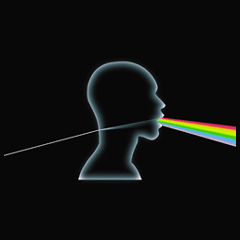
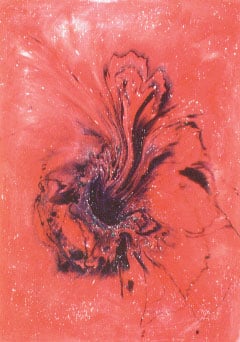
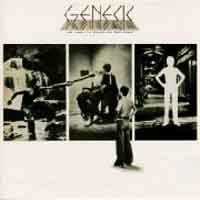
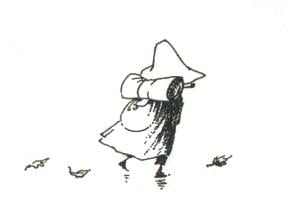


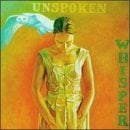
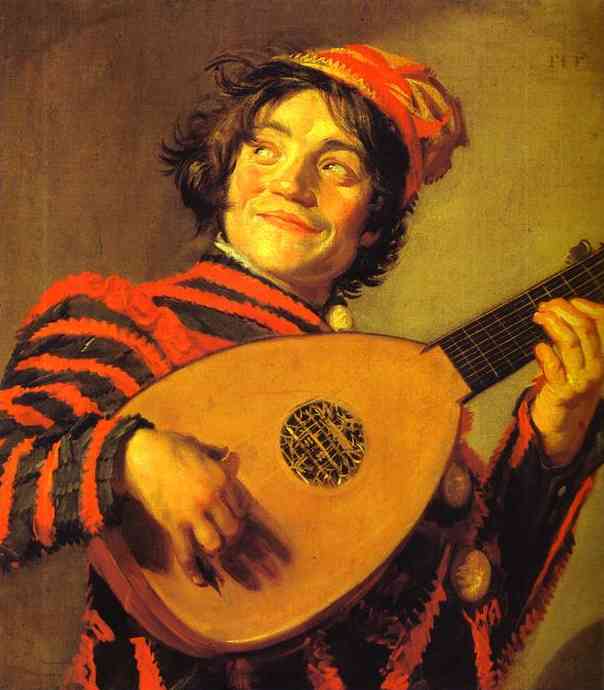
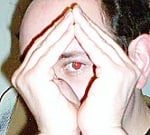

 |
| 